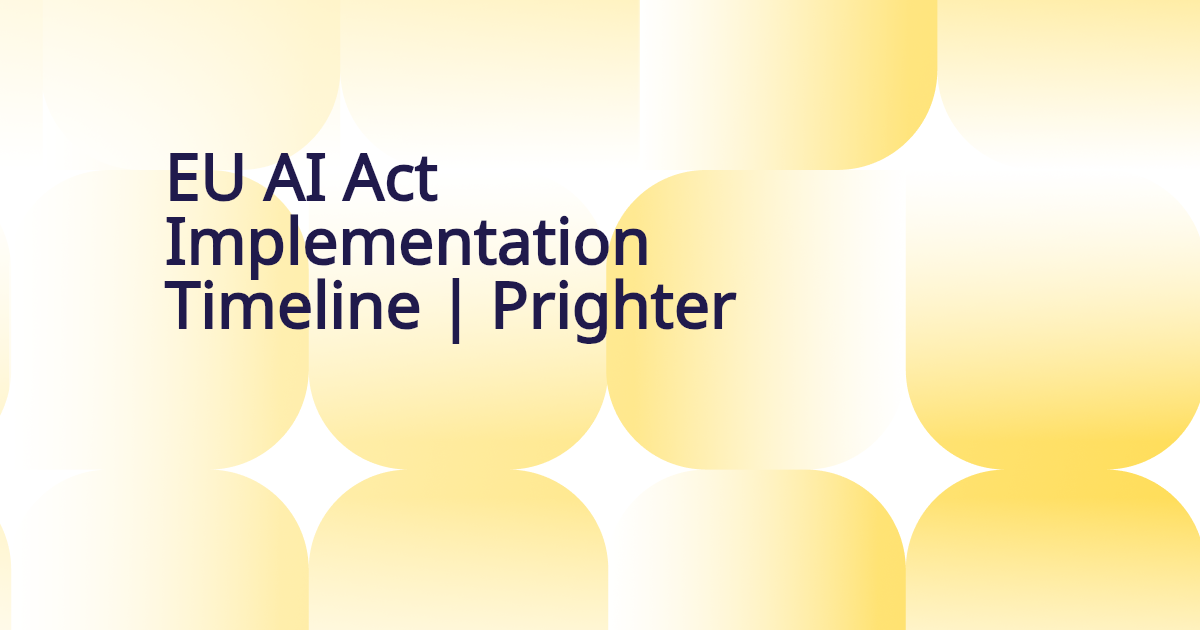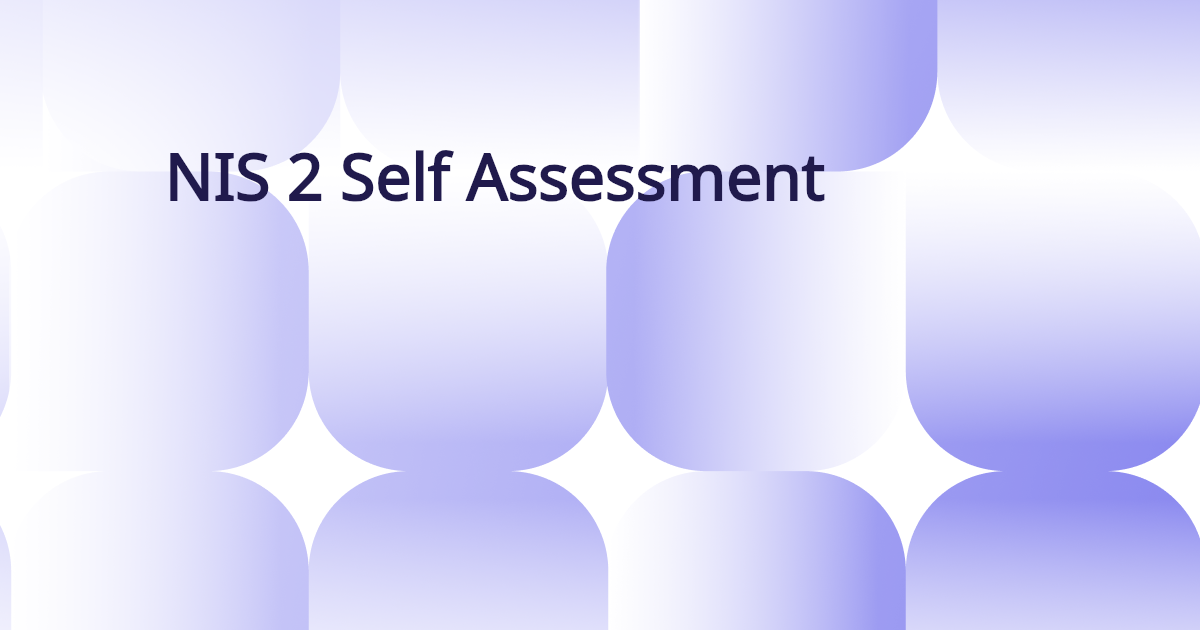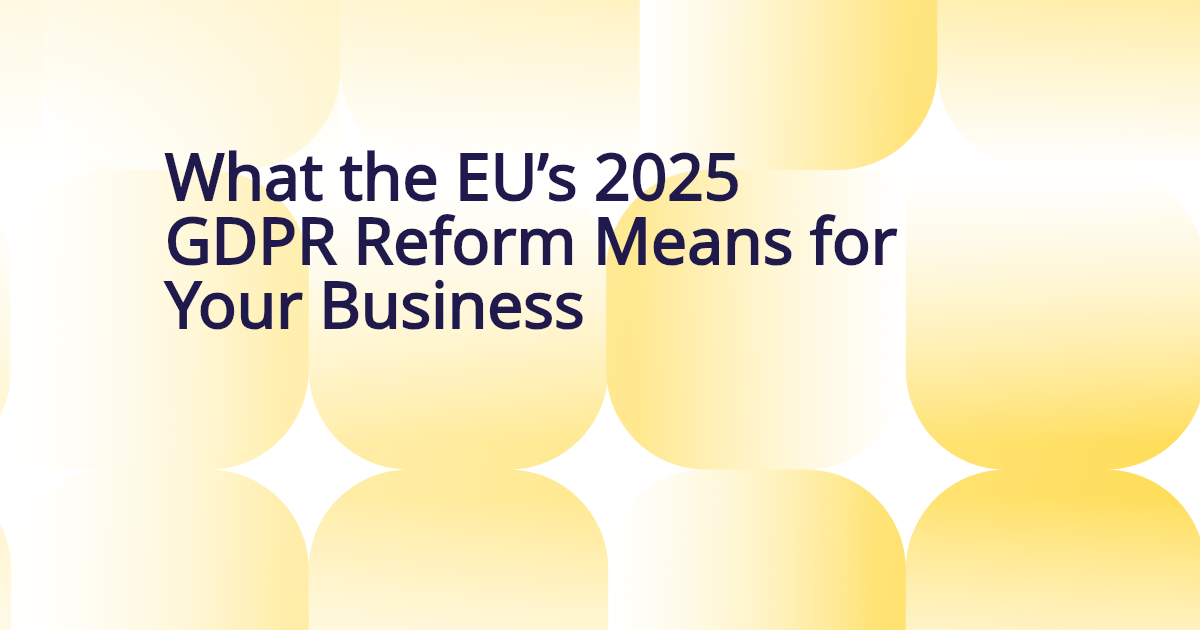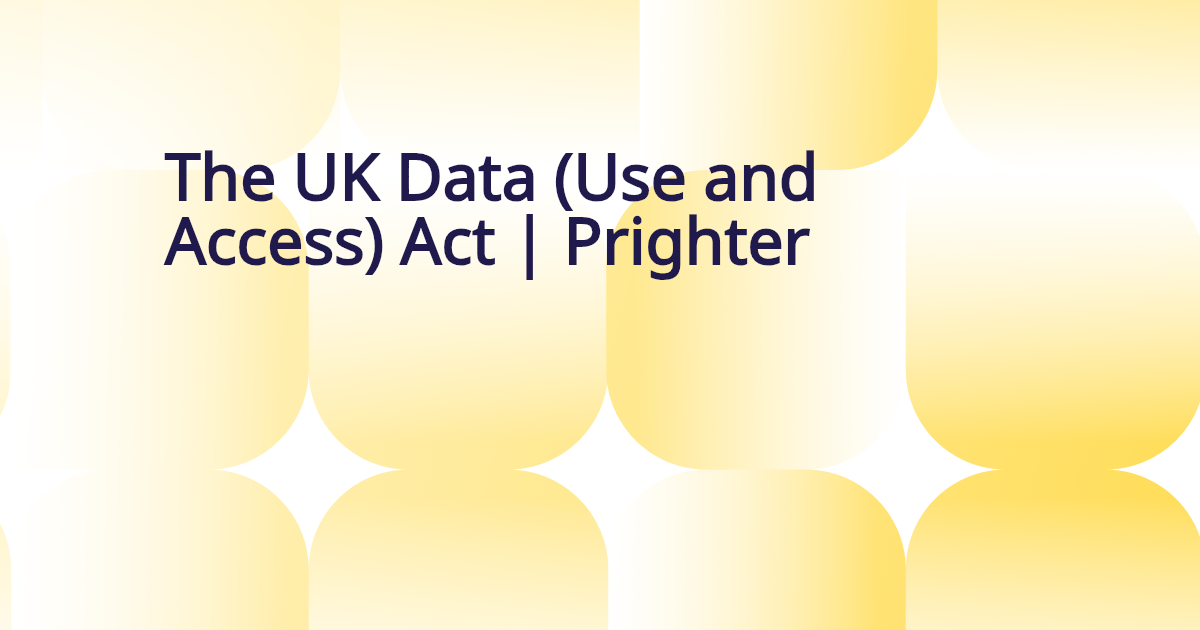
UK NIS代理人って必要?
FAQでUK NISの概要、適用範囲、自社に代理人が必要かどうかをわかりやすく解説しています。
UK NISとは?
UK NIS規則(ネットワークおよび情報セキュリティ規則)は、重要サービスやデジタルインフラのサイバーセキュリティと耐障害性を向上させることを目的とした英国の法律です。
UK NISは、エネルギー、輸送、医療などの重要サービス事業者(OES)や関連するデジタルサービス提供者(RDSP)に、強固なセキュリティ対策と重大なサイバーインシデントの報告を求めています。目的は、重要サービスの継続性を確保し、サイバー脅威から英国のデジタル経済を守ることです。
NISは、サイバー攻撃や物理的インシデントなど多様なリスクに備え、技術的・運用的・組織的なサイバーセキュリティ対策を義務付けています。
UK NISに準拠することで、事業運営を保護し、耐障害性を強化。ステークホルダーを守り、サービスへの信頼を高められます。不遵守には最大1,700万ポンドの罰金が科される可能性があります。
UK NISは域外適用があり、英国国外に本社を置く企業でも、英国で事業を行う場合はNIS主管当局およびCSIRTへの連絡先として代理人を任命することを義務付けています。
信頼を確立し、リスクを最小化
Prighterを代理人にすれば、英国でサービスを安定して提供する姿勢を示せます。
いざというときも当局と連携し、トラブルを最小限に抑える準備ができます。
NIS代理人はPrighterにお任せ
PrighterはUK NIS代理人として御社のコンプライアンスを徹底支援。
罰金リスクを回避し、当局との確実な連絡手段を提供します。
かんたん・スピーディーに導入
PrighterがNIS主管当局への登録を代行。
代理人情報は御社サイトや契約書、ベンダー評価資料に利用でき、UK NIS代理人を任命済みであることをしっかり示せます。
信頼できる現地窓口を確保
サイバーセキュリティは重要課題。
Prighterなら、監督当局との必要なやり取りやインシデント報告を正確かつ丁寧に管理できます。
監督当局との連絡
PrighterはUK NISに関するあらゆる事項で、NIS監督当局やCSIRTへの正式な連絡窓口を務めます。
Authority Case Managementシステムにより、監督機関とのすべてのやり取りを見える化し、完全に管理。
インシデント報告
インシデント報告は代理人の重要な役割です。
Prighterの専門チームとIncident Managementシステムを活用することで、重大な場面でも確実に対応できます。
また、同じインシデントについてGDPR違反通知が必要な場合も、まとめて対応できます。
規制対応で事業成長を後押し
UK NISの適用対象であるということは、英国に重要なサービスを提供している証です。
コンプライアンスを確実に管理していることを示し、信頼を構築して営業活動を促進しましょう。
コンプライアンスをアピール
顧客、監督当局、その他重要なステークホルダーに、御社が信頼できるプロアクティブなパートナーであることを示しましょう。
ウェブサイトにPrighterコンプライアンスバッジを表示し、UK NIS代理人としてPrighterを任命したことを証明するコンプライアンス証明書を活用できます。
Trust Center
貴社専用のカスタマイズ可能なTrust Centerランディングページを提供。
セキュリティやコンプライアンスへの取り組みを効果的にアピールし、顧客の信頼を高めましょう。
プロフェッショナルによるサポート
経験豊富な専門家によるサービス設計と支援で、UK NIS関連の監督当局・CSIRTとの連絡もプロがしっかりサポートします。
オールインワンで解決
データセキュリティ、プライバシー保護、デジタルガバナンスは切り離せません。
Prighterとそのグローバルネットワークを活用すれば、あらゆるデジタルコンプライアンスニーズをまとめて解決できます。
ニーズに合わせて
コアサービスに加え、法務、技術、セキュリティの各分野に対応する専門サービスも用意。
専門家の知見と経験を活かして、デジタル規制の変化にも自信を持って対応できます。
情報ライブラリ
リーガルナレッジやガイドラインなど役立つ資料を社内チーム向けに提供。
Prighterがこれまで培った知見を活用し、自社のニーズに合わせてカスタマイズできます。
プロにお任せ
Prighterは頼れるパートナーとして御社をサポート。
個別ニーズに合わせてセキュリティ体制の構築や運用を支援し、「人の温かみ」を感じるサービスを提供します。
:quality(80):fill(transparent))
UK NIS代理人
サイズを選択:
サイズを選択:
medium
50-249 employees
large
250-749 employees
enterprise
750+ employees
補完製品を追加:
Privacy Representation
4 products
Digital Governance
2 products
Privacy Software
2 products
基本機能
マーケティング機能
監督機関対応
個人(データ主体)対応
他コンテンツ
サブスクリプション
ご利用の流れ
お客様の声
世界中の組織と提携し、堅牢なコンプライアンスを確保しています。以下は、当社の尊敬されるお客様がPrighterの体験について述べた内容です。
:quality(95))
Prighter は、EU および UK GDPR の代理人契約に関して、私たちが求めていた答えを提供してくれました。モバイルアプリを開発するスタートアップという立場でのニーズにも即応し、チーム全員が高品質で親身なサポートをしてくださいました。複雑な市場においてサービスを進化させ続ける姿勢も立派ですし、業界アップデートやウェビナーも常に魅力的かつ有用です。Prighter があることで安心感が得られ、時間も節約できており、信頼できるパートナーシップに心から満足しています。
情報ライブラリ
Prighterの情報ライブラリは、世界中の企業が国際的なプライバシー、AI、デジタル・ガバナンスに関する規制を理解し、対応できるよう支援するためのコンテンツを揃えています。
コンプライアンスに不慣れな方も、専門家の方も、ご自身の取り組みをレベルアップするための実用的なヒントや最新情報が見つかります。
よくあるご質問(FAQ)
当社はUK NIS指令の対象になりますか?
Brexit(イギリスEU離脱)後もNIS指令はイギリスで適用されていますか?
イギリスにおいて、ネットワークおよび情報システム(NIS)規則は引き続き完全に適用されます。
元々はEUのNIS指令を基にしていましたが、イギリスではこれを「UK NIS規則2018」として国内法に移行しました。ブレグジット後もこの規則は維持されており、国内のネットワークと情報システムのセキュリティを強化するために有効に機能しています。そのため、UK NIS規則は現在も効力を持ち、法的拘束力があります。
UK NIS指令に準拠すべき企業とは?
UK NIS規則2018は以下の対象に適用されます:
- 重要サービスの運営事業者(OES):エネルギー、銀行、交通、医療、水道、デジタルインフラなどの分野に属する組織
- デジタルサービスプロバイダ(DSP):オンライン検索エンジン、オンラインマーケットプレイス、クラウドコンピューティングサービスなど
この規則は以下の条件を満たすDSPに適用されます:
- オンライン検索エンジン、オンラインマーケットプレイス、またはクラウドコンピューティングサービスのいずれかを提供している
- 従業員が50人以上、かつ年間売上高またはバランスシート合計が1,000万ユーロを超えている(中小企業の定義を超える場合)
なお、本社がイギリス国外にある場合には、UK拠点の代表者(代理人)を任命する必要があります。
UK NIS規則により、これらの組織は強固なセキュリティ対策の実施と重大インシデントの報告が求められ、イギリス国内の重要サービスのレジリエンスとセキュリティ確保に貢献します。
Digital Service Providerとは?
デジタルサービス提供者(DSP)とは、イギリスのネットワークおよび情報システム(UK NIS)規則の対象となるデジタルサービスを提供する法人を指します。ただし、すべてのデジタルサービスが該当するわけではなく、対象となるサービスは以下に限られます。
- オンラインマーケットプレイス:
消費者と事業者がオンラインで売買やサービス契約を成立させるプラットフォーム。契約の締結が最終的に行われる場所を意味します(例:サードパーティ製アプリを配信するアプリストアなど)。ただし単に第三者サービスへの仲介を行うオンラインサービスは含まれません。 - オンライン検索エンジン:
ユーザーがキーワード検索でウェブサイトを検索できるサービス。多言語対応の検索エンジンも含まれますが、特定ウェブサイト内のコンテンツのみを検索対象とするものや、複数の販売者の価格比較後にリンクを提供するだけのサービスは対象外です。 - クラウドコンピューティングサービス:
ネットワーク、サーバー、ストレージ、アプリ、サービスなどのスケーラブル・エラスティック・共有可能なコンピューティング資源へのアクセスを提供するサービス。要件は以下の3点です:- リソースの拡張性(Scalable Resources)
- 弾力的なリソースプール(Elastic Pool)
- 複数ユーザー間での共有(Shareable)
IaaS(インフラ)、PaaS(プラットフォーム)、SaaS(ソフトウェア)などのビジネスモデルも、NIS2の対象に含まれます。
免除規定:小規模・零細事業者
以下の条件を満たす事業者は、対象外とみなされ、NIS規則の適用を受けません:
- 従業員数が50人未満、かつ
- 年間売上または貸借対照表合計が1,000万ユーロ未満
ただし、グループ全体の合算した数値がこれらを超える場合は適用外となります。
当社はイギリス向けにサービス提供してることになる?
イギリスでサービスを提供しているかどうかを判断するには、自社がどの市場を対象としているかを判断する必要があります。
単に英語でウェブサイトが閲覧可能であることは、イギリス市場を対象にしている意図を示すものとは言えません。
以下のような要因が重要です:
- 英語やイギリス通貨の使用:料金をポンド(GBP)で表示したり、英語でコンテンツを提供したりしている場合は、イギリスの顧客を対象としている意図があると見なされます。
- 注文機能の有無:イギリス市場向けに設計された商品やサービスを注文できるようにしている場合は、イギリスでサービスを提供しているとみなされます。
- マーケティングおよびターゲティング活動:イギリスに向けた広告キャンペーンや、イギリスに拠点を置くカスタマーサポートを提供している場合は、その地域でサービス提供していると見なされる可能性が高くなります。
代理人の設置を免れるケースはある?
一定の条件下では免除されます。
イギリスに拠点がなくても、イギリス国内でデジタルサービスを提供している企業は、原則として「イギリスのネットワークおよび情報システム規則(UK NIS Regulations 2018)」に基づき、イギリスNIS代表者を任命する義務があります。
ただし、以下の企業はこの義務の対象外です:
- 小規模企業:従業員数が50人未満、かつ年間売上高または年間貸借対照表総額が1,000万ユーロ以下の企業
- マイクロ企業:従業員数が10人未満、かつ年間売上高または年間貸借対照表総額が200万ユーロ以下の企業
UK NIS指令が適用される事業者の主な義務は?
UK NIS規則に基づき、イギリス国内でサービスを提供するデジタルサービス提供者(DSP)は、ネットワークおよび情報システムのセキュリティとレジリエンスを確保するため、以下の主要な義務があります。
技術的および組織的対策
DSPは、使用するネットワークおよび情報システムに対するリスクを特定し、適切かつ比例的な技術的・組織的対策を実施する必要があります。これらには次の要件が含まれます:
- リスク管理:データやサービスの可用性、真正性、完全性、機密性を脅かすリスクに対応すること
- 比例性:リスクの潜在的影響と、最新技術および導入コストを考慮した対策を行うこと
- 予防措置:可能な限りサイバーセキュリティインシデントを未然に防ぐこと
インシデント管理および影響の最小化
DSPには次の対応が義務づけられます:
- インシデント予防:ネットワークやシステムへの影響を防ぐ措置
- 影響最小化:発生したインシデントによる影響を縮小し、サービスの継続性を確保
- 復旧計画:迅速なサービス回復を目的とした対応・復旧計画の策定と維持
インシデント報告
重大な影響をもたらすインシデントが発生した場合、DSPは以下の対応が必要です:
- 通知義務:遅滞なくイギリス情報コミッショナー事務局(ICO)に報告
- 報告内容:インシデントの性質、影響範囲、対応策などを含め、ICOが重大性を判断できる情報を提供
- 協力義務:ICOやナショナル・サイバー・セキュリティ・センター(NCSC)と協力し、調査や対処を支援
代理人の任命
本規則において、イギリスで活動していながら英国拠点がない場合、イギリスNIS代理人を任命することを義務付けられています。
代理人の役割は以下の通りです:
- 連絡窓口:ICOやその他関連当局の窓口として機能
- コンプライアンス保証:DSPが規則のすべての義務を遵守するよう支援
- 対応可能性:監督当局からの照会や執行行為に対応できるよう常時アクセス可能であること
Where does our company have to appoint a NIS representative?
Which NIS law do I have to comply with?
If your company is a Digital Service Provider (DSP) and exceeds the relevant thresholds, the applicable law under the UK Network and Information Systems (NIS) Regulations 2018 depends on where your company is established and where you offer your services:
- If your company has its head office in the UK: You are governed by the UK NIS Regulations 2018.
- If your company does not have its head office in the UK but offers services there: You are governed by the UK NIS Regulations 2018 and you must appoint a representative in the UK who will act on your behalf under UK jurisdiction.
In both cases, your company must comply with the UK NIS Regulations, implementing appropriate security measures and fulfilling all reporting obligations.
Does our company need a UK representative?
If your company is a Digital Service Provider (DSP) without its head office in the United Kingdom but offers certain digital services within the UK, you are required to appoint a UK representative under the UK Network and Information Systems (NIS) Regulations 2018.
According to the regulations:
- Designation of a Representative: Companies without a head office in the UK but offering certain digital services in the UK must designate a representative based in the UK. This representative will act on your company’s behalf to ensure compliance with the UK NIS Regulations.
- Impact of Brexit: Since Brexit, the European Union (EU) is now considered a "third country" from a UK perspective. As a result, if you are an EU-based company offering services in the UK but without a head office in the UK, you will need to appoint a UK representative.
Role of the Representative:
- Acts on behalf of your company regarding compliance with the UK NIS Regulations.
- Serves as the point of contact for relevant UK authorities.
By appointing a UK representative, your company ensures compliance with the UK NIS Regulations, contributing to the security and resilience of network and information systems within the United Kingdom.
What are the requirements for appointing a UK NIS representative?
If your company is a Digital Service Provider (DSP) without its head office in the United Kingdom but offers digital services within the UK, you are required under the UK Network and Information Systems (NIS) Regulations 2018 to appoint a representative in the UK. The requirements for appointing a UK NIS representative include:
- Confirmation in Writing: You must confirm the appointment of your UK representative in writing after completing the registration process with the Information Commissioner's Office (ICO).
- Representative's Compliance: Your representative must comply with UK law and act on your behalf in fulfilling your legal obligations under the UK NIS Regulations, including incident reporting.
- Accessibility: The representative should be readily contactable by the ICO and the National Cyber Security Centre (NCSC).
When nominating your UK representative, you should provide the ICO with information about:
- Your Company's Head Office: Whether you have a head office located outside the UK.
- Other Representatives: Whether you have nominated a representative in another country.
- Compliance with Other Legislation: Whether you are complying with equivalent network and information systems legislation in another country.
- Location of Systems: Whether you are operating network and information systems located outside the UK.
By providing this information, you help the ICO understand your company's structure and ensure effective communication. Appointing a UK representative ensures that your company adheres to the UK NIS Regulations, contributing to the security and resilience of essential digital services within the United Kingdom.
Do companies that are based outside the EU and the UK need two representatives now?
If your company does not have an establishment within either the EU or the UK but is offering their services to individuals in both regions, you will have to appoint both an EU and a UK representative in order to comply with all relevant legislation, which consists of EU law and its implementation in the Member States on one hand, and UK law on the other hand. Please note that your EU representative must be established in one of the Member States your services are being offered to. Your UK representative must be established in the UK.
What are the possible consequences of non-compliance with the UK NIS Regulations?
Under the UK Network and Information Systems (NIS) Regulations 2018, organizations that fail to comply with their obligations can face substantial penalties. Non-compliant companies may be fined up to £17 million. The exact amount depends on factors such as the severity of the breach, the extent of the negligence, and the potential impact on network and information system security. Failure to appoint a UK NIS representative when required is also a serious offense. Organisations that operate in the UK but do not have their head office located within the UK are required to appoint a UK NIS representative to ensure compliance with the regulations.
How can our company appoint Prighter as our representative?
What are the general requirements when appointing a UK NIS representative and what are the obligations of the representative?
When appointing a representative under the UK Network and Information Systems (NIS) Regulations 2018, a Digital Service Provider (DSP) must explicitly designate the representative through a written mandate. This representative should be established in the United Kingdom and act as a local contact point, being readily accessible to relevant UK authorities like the Information Commissioner's Office (ICO) and the National Cyber Security Centre (NCSC). The representative acts on behalf of the DSP regarding all legal obligations under the UK NIS Regulations, including incident reporting and liaising with authorities. They must comply with UK law and assist with any investigations or requests related to NIS compliance. By appointing a UK NIS representative, Digital Service Providers (DSPs) that do not have their head office in the UK ensure that they fulfil their legal obligations and contribute to the security and resilience of network and information systems within the United Kingdom.
How does Prighter comply with these requirements?
Prighter ensures compliance by offering an end-to-end digital onboarding process where a Power of Attorney is generated and can be signed either online or on paper. We provide dedicated communication channels with the relevant UK authorities, such as the Information Commissioner's Office (ICO) and the National Cyber Security Centre (NCSC), acting on your behalf to fulfill all legal obligations under the UK Network and Information Systems (NIS) Regulations 2018, including incident reporting and liaising with authorities.










































